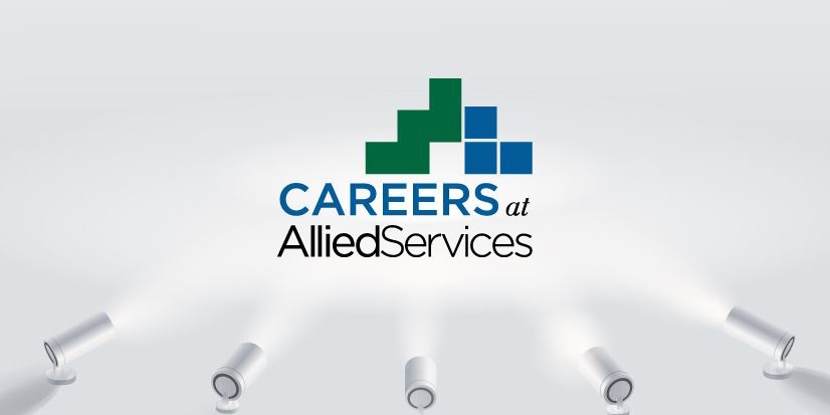Age-Proof Your Vision: The Importance of Eye Care as You Age
- Category: News
- Posted On:
- Written By: Allied Services Integrated Health

The current trend after retirement is to “age in place.” Simply put, this means living in one’s own home, wherever that might be, for as long as you can both safely and comfortably. You may need to modify your behavior or adapt your home in order to accomplish this. For instance, balance concerns may force you to install grab bars in your bathroom. Also, your hearing may now require you to turn up the volume on the TV or consider hearing aides.
Our vision changes as we age also. Eyeglasses are needed for reading and close-up work. Cataracts may cause your sight to be cloudy or blurry. There are other issues you may also notice. These changes may be subtle at first. It may be getting harder to see and drive at night. Your depth perception may seem impaired occasionally for navigating steps or curbs. You may have a more difficult time distinguishing the difference between colors like blue or black.
According to the National Institute of Health, on average older individuals may require 3 times as much contrast as a younger person to see a target. This can affect reading, color discrimination, face identification, and mobility. The New York Times has reported that the typical 50 year old may need 2 times as much light to see as well after dark as a 30-year-old. Although we need to adapt to these changes in our vision they are considered a normal part of aging.
There are however age-related diseases of the eyes that require the treatment and management of an eye care professional. This can include:
- Macular degeneration which affects central vision leading to difficulty with reading, writing and self-care.
- Diabetic retinopathy which causes blurred or hazy vision, sensitivity to glare, and possible blindness.
- Glaucoma which initially affects peripheral or side vision leading to difficulty and safety with mobility and can eventually cause blindness
Whether the changes to your vision are related to a normal part of the aging process or an eye abnormality, modifications may be needed to function as independently as possible for as long as possible in your desired living situation. These modifications can improve your efficiency and safety with everyday tasks. Some low to no cost examples include:
- Adding or upgrading the lighting in your home. This includes lighting for inside stairs and outside steps/pathways, adding table lamps for reading/writing, and under-the-counter lighting for meal preparation/clean up.
- Improving contrast in your home. Making objects stand out more such as the use of dark towels, dark bath mats, and dark outlet covers on a lighter colored background.
- Organizing/decluttering your home. This includes cabinets, drawers, hallways, and closets
Being proactive when it comes to your eye health is essential. Schedule and keep your eye care specialist appointments. These professionals will diagnose and manage any age-related disease to prevent further regression of your sight. They can also provide you with additional resources for staying safe and active. It is also important to follow your recommended diet, stop smoking, and maintain healthy blood pressure and glucose levels. Take your medications as prescribed and wear your recommended eyewear. This includes wearing your prescription glasses and/or sunglasses. Being informed on possible age-related visual changes and how to adapt to them can ensure you are as functional and independent as possible for the golden years to come.
Stephanie Maciolek, OTR/L, is an experienced therapist with more than 33 years of experience. She treated patients at Allied Services Luger Scranton Rehab Center. She has been serving patients at Allied Services since 1998. Stephanie is a specialist in both low vision and vision therapy.
Call 570-348-1360 to schedule an evaluation or learn more about vision loss treatment.



